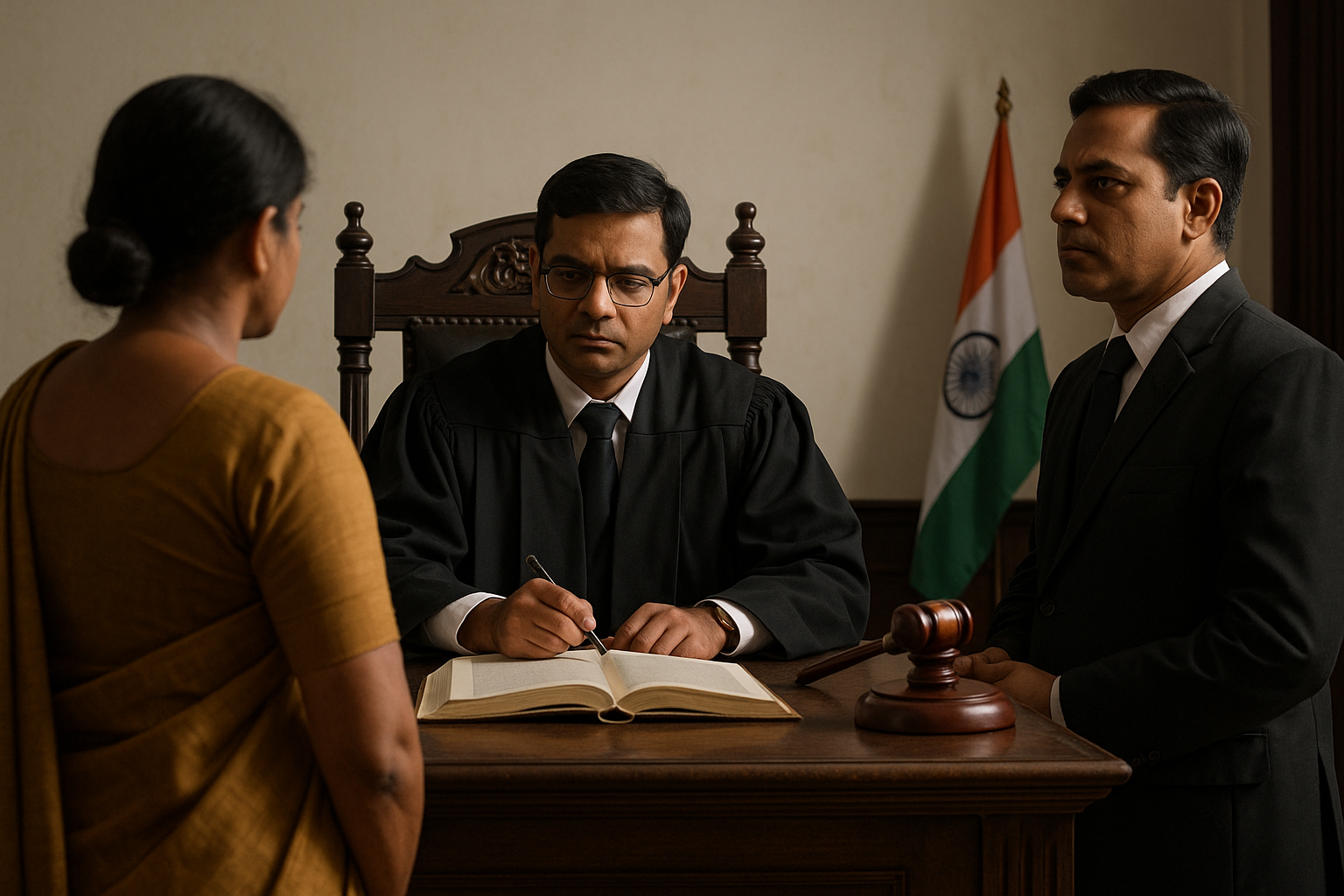Simplified Explanation of the Judgment
The Patna High Court recently ruled in favor of a Child Development Project Officer (CDPO) who was facing disciplinary punishment for alleged corruption. The officer had been accused of demanding illegal money from Anganwadi workers under her supervision, with each worker allegedly being asked to pay Rs. 3,000.
The case began when a group of Anganwadi Sevikas submitted a complaint to the District Magistrate of Bhojpur, alleging that a Head Clerk in the CDPO’s office had been demanding bribes. Although the complaint didn’t directly accuse the CDPO of making the demand, it was suggested that she might be indirectly involved.
Upon receiving the complaint, the administration initiated a preliminary inquiry. Interestingly, 71 Anganwadi Sevikas later came forward and stated that their signatures had been fraudulently obtained on the complaint. The Additional Collector submitted a report acknowledging the contradictory statements and noted that it was “practically difficult” to reach a definite conclusion regarding the CDPO’s involvement.
Despite this uncertainty, the Social Welfare Department proceeded to initiate a departmental inquiry. A charge-sheet was issued, and a disciplinary proceeding was carried out. However, no witnesses were examined during the departmental inquiry, and the only evidence relied upon was the original complaint and the preliminary inquiry report.
The Enquiry Officer ultimately concluded that the charge was proven and recommended a penalty. The punishment imposed was a reduction to the lowest pay scale. Even the review application filed by the CDPO was rejected by the authorities.
The petitioner then approached the Patna High Court, challenging both the disciplinary order and the rejection of her review application. The Court examined the sequence of events and found that the enquiry was seriously flawed. Key witnesses were not examined, the Presenting Officer himself expressed doubts about the validity of the complaint, and the primary evidence was inconsistent and unverified.
The Court held that the findings of the Enquiry Officer were perverse and unsupported by any substantial evidence. As a result, it quashed both the punishment order and the order rejecting the review application. The CDPO was granted all consequential benefits and was also awarded a cost of Rs. 10,000 by the Court for the unjust proceedings she had to endure.
Significance or Implication of the Judgment
This ruling emphasizes the importance of due process and evidentiary standards in departmental inquiries, especially when allegations of corruption are involved. It protects public servants from arbitrary and unsubstantiated disciplinary actions. The judgment sends a clear message to administrative departments across Bihar and India that disciplinary action must be backed by solid, admissible evidence and proper procedure.
For the general public, it reinforces the integrity of the judiciary in upholding fair treatment for government employees. For the government, it highlights the need to strengthen internal inquiry mechanisms to ensure justice is not compromised by poorly conducted investigations.
Legal Issue(s) Decided and the Court’s Decision
- Whether the departmental inquiry was valid despite lack of direct evidence or witness examination?
- Decision: No. The Court found the inquiry to be legally unsustainable due to absence of proper evidence and witness testimony.
- Whether the disciplinary punishment imposed was justified?
- Decision: No. The punishment was quashed for being based on a flawed and unsupported enquiry.
- Whether the CDPO was entitled to consequential benefits and costs?
- Decision: Yes. The Court awarded costs of Rs. 10,000 and restored all benefits due to the petitioner.
Judgments Referred by Parties
- Ajoy Kumar vs. The State of Bihar, 2011(3) PLJR 43
Case Title
Kumari Reeta @ Reeta Kumari vs. The State of Bihar & Others
Case Number
Civil Writ Jurisdiction Case No. 14412 of 2019
Citation(s)
2020 (1) PLJR 65
Coram and Names of Judges
Hon’ble Mr. Justice Chakradhari Sharan Singh
Names of Advocates and who they appeared for
- Mr. Bindhyachal Singh, Advocate — for the petitioner
- Mr. Prashant Sinha, Advocate — for the petitioner
- Mr. Gyan Prakash Ojha, Government Advocate 7 — for the State
- Mr. Gopal, AC to GA-7 — for the State
Link to Judgment
https://patnahighcourt.gov.in/viewjudgment/MTUjMTQ0MTIjMjAxOSMxI04=-ZgZWj9zlhYQ=
If you found this explanation helpful and wish to stay informed about how legal developments may affect your rights in Bihar, you may consider following Samvida Law Associates for more updates.








